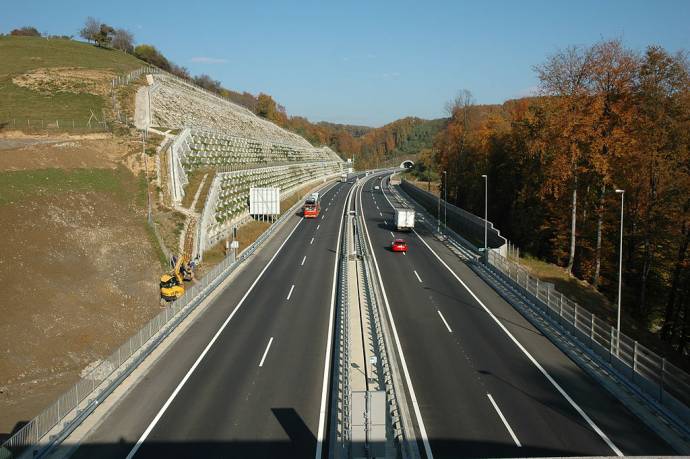The coalition intends to upgrade the building permit for the Koper-Divača project to accommodate for the expansion of service tubes, and confirm the investment plan.
It will continue talks with inland countries to co-fund the project, yet it does not exclude the option of Slovenia building it on its own, according to the information obtained by the STA.
Welcoming the plans in a statement for the STA, Slovenko Henigman from the Chamber of Commerce and Industry (GZS) said efforts should nevertheless be made to attract foreign countries "to secure funding, but also to secure an expansion of markets", yet not at any cost.
Similarly, the GZS's Transport Association believes the Koper-Divača rail expansion should remain the government's priority, as it is not only important for the port of Koper but is also a prerequisite for the development of transport routes and logistics as a sector.
The association agrees with the coalition's plan to carry out the project through TDK2, a public company set up for this purpose, and believes Hungary should be kept to co-finance the investment.
The coalition's other plans for the country's transport sector involve stable funding of investment into transport infrastructure and imposing restrictions on vehicles with high emissions.
The coalition would like to enable the Slovenian Infrastructure Agency to better plan investments into transport infrastructure and maintenance, so it will earmark at least EUR 230 a year for it, the same amount the agency received in 2018, the first year of its 2018-2023 investment plan.
The six-year plan will also be made part of the documents passed by parliament in adopting the annual national budget, a move Henigman welcomed as stable funding.
The coalition plans to continue with the plans to build the Third Development Axis, or roads to better connect the region of Koroška and parts of Dolenjska and Bela Krajina. It intends to introduce integrated ticketing and increase public transport subsidies.
Meanwhile, the Transport Association called for further investment into renovation, modernisation and construction of roads and railways as a priority.
Motorways should be expanded with a third lane to avoid congestions, while the government should decide what to do with the logistics sector as such.
"Value added created in logistics is considerable, so it would be right if the government defined logistics and transport as a strategic branch of economy," said the association.
The coalition parties also want to keep the current tolling system for cars of up to 3.5 tonnes, but introduce electronic stickers.
Meanwhile, toll and tariffs would be raised for trucks with high emissions, while limits to imports of diesel vehicles with high emissions would also be imposed.
In the coming four years, the coalition would like to gradually redirect cargo transport from roads to railways.
The Transport Association does not oppose the planned limits to trucks with higher emissions, saying similar measures had been introduced abroad.
However, restrictions to diesel car imports would affect citizens more than hauliers, which the association said buy trucks of the highest standards.







